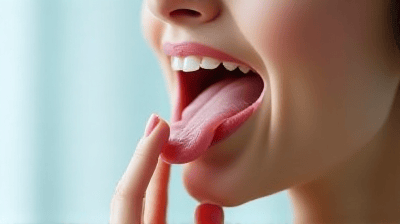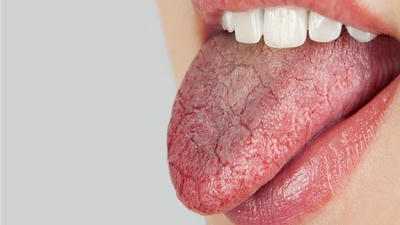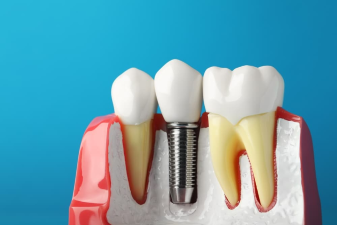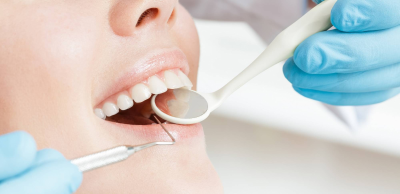Dry mouth, or xerostomia, is a condition that many people experience at some point in their lives. It occurs when the salivary glands do not produce enough saliva to keep the mouth moist. While temporary dry mouth is often not a cause for concern, chronic dry mouth can lead to various dental problems, discomfort, and a lower quality of life. Understanding the causes, exploring effective treatments, and adopting prevention tips can help manage dry mouth effectively.

Understanding Dry Mouth
What Is Dry Mouth?
Dry mouth is characterized by a persistent feeling of dryness in the mouth due to reduced saliva production. Saliva is essential for maintaining oral health as it helps in digestion, neutralizes acids produced by bacteria, washes away food particles, and keeps the tissues of the mouth lubricated. A lack of saliva can lead to difficulties in chewing, swallowing, and speaking.
Signs and Symptoms of Dry Mouth
The symptoms of dry mouth can vary in intensity from mild discomfort to significant issues affecting daily life. Common symptoms include:
- A sticky or dry feeling in the mouth
- Difficulty swallowing or chewing
- Cracked lips or dry throat
- Bad breath
- Increased thirst
- Mouth sores or ulcers
- Altered taste sensation
Causes of Dry Mouth
Several factors can contribute to dry mouth, ranging from lifestyle choices to medical conditions. Understanding these causes can help in the effective management of the condition.
1. Medications
Many medications can cause dry mouth as a side effect. These include:
- Antidepressants
- Antihistamines
- Decongestants
- Diuretics
- Pain medications
- Muscle relaxants
If you are taking medications and experiencing dry mouth, consult your healthcare provider to discuss possible alternatives or solutions.
2. Health Conditions
Certain health conditions can impact saliva production, leading to dry mouth. Common health issues associated with dry mouth include:
- Diabetes: High blood sugar levels can lead to dehydration and mouth dryness.
- Sjögren’s Syndrome: An autoimmune disorder that attacks salivary glands, reducing saliva production.
- HIV/AIDS: This condition can lead to various oral health issues, including dry mouth due to medication side effects or related health factors.
- Parkinson’s Disease: Neurological disorders can affect salivary gland function and lead to dryness.
3. Dehydration
Dehydration can result from various factors, including:
- Inadequate fluid intake
- Excessive sweating
- Illness or fever
- Vomiting or diarrhea
When the body is dehydrated, saliva production diminishes, contributing to dry mouth.
4. Tobacco and Alcohol Use
Both tobacco products and alcoholic beverages can dry out the mouth. Smoking or chewing tobacco can reduce saliva production and exacerbate oral health issues. Similarly, alcohol, particularly when consumed in excess, can lead to dehydration and dry mouth.
5. Aging
As individuals age, the production of saliva may decrease naturally. Additionally, older adults often take multiple medications or may have underlying health conditions that exacerbate dry mouth.
6. Stress and Anxiety
Stress and anxiety can lead to interruptions in normal bodily functions, including saliva production. Many people may notice that their mouths feel dryer during stressful situations.
7. Mouth Breathing
Breathing through the mouth, especially during sleep, can lead to dry mouth. Conditions such as nasal congestion or sleep apnea that cause individuals to breathe through their mouths contribute to this issue.

Treating Dry Mouth
If you are experiencing chronic dry mouth, it is essential to explore treatment options to relieve symptoms and prevent complications. Here are several effective treatment strategies:
1. Stay Hydrated
One of the simplest solutions for dry mouth is to increase fluid intake. Drink plenty of water throughout the day to help keep your mouth moist. Carry a reusable water bottle with you to encourage frequent sipping.
2. Saliva Substitutes
There are over-the-counter saliva substitutes designed to mimic the natural properties of saliva. These products come in various forms, including sprays, gels, and lozenges. They can provide temporary relief from dry mouth symptoms.
3. Chew Sugar-Free Gum
Chewing sugar-free gum can stimulate saliva production. This action can help keep the mouth moist and promote better oral health. Look for options containing xylitol, which can also help prevent cavities.
4. Use a Humidifier
Using a humidifier in your home, particularly during dry seasons or while sleeping, can help maintain moisture in the air and prevent dry mouth.
5. Adjust Medications
If medications are the cause of your dry mouth, consult your healthcare provider. They may be able to adjust your dosage, switch you to an alternative medication, or suggest strategies to mitigate this side effect.
6. Avoid Certain Substances
Certain substances can exacerbate dry mouth symptoms. Limit or avoid:
- Caffeine: Found in coffee, tea, and some sodas, caffeine can have a drying effect.
- Alcohol: Many alcoholic beverages can lead to dehydration.
- Tobacco: Quitting smoking or tobacco use can improve your oral and overall health.
7. Oral Care Products for Dry Mouth
Some toothpaste and mouth rinses are specially formulated for individuals with dry mouth. These products are designed to be gentle on the mouth and help retain moisture.
8. Prescription Medications
In severe cases of dry mouth, your healthcare provider may prescribe medications that stimulate saliva production. Common options include:
- Pilocarpine: Often used to treat dry mouth conditions associated with Sjögren’s syndrome or certain medications.
- Cevimeline: Another medication designed to promote saliva flow in individuals with dry mouth.
9. Regular Dental Check-ups
If you experience chronic dry mouth, consult your dentist regularly. They can assess your oral health, provide guidance specific to your situation, and monitor for complications such as cavities or gum disease.
Preventing Dry Mouth
Prevention is key when it comes to dry mouth management. Here are some tips to help prevent dry mouth from occurring or worsening:
1. Practice Good Oral Hygiene
Maintaining consistent oral hygiene is essential for preventing dry mouth-related issues. This includes brushing your teeth twice a day, flossing daily, and using fluoride toothpaste. Consider using mouth rinses that promote moisture and protect against cavities.
2. Drink Water Frequently
Stay hydrated by drinking water regularly throughout the day. Aim to sip water instead of gulping down large amounts at once. Hydration is key in keeping the mouth moist.
3. Quit Smoking
If you smoke or use other tobacco products, seek assistance to quit. Smoking contributes significantly to dry mouth and has negative effects on oral health.
4. Manage Health Conditions
Work closely with your healthcare provider to manage any chronic health conditions that may contribute to dry mouth. Proper management can reduce symptoms and improve your quality of life.
5. Avoid Spicy or Salty Foods
Certain foods can irritate a dry mouth. It may be wise to limit consumption of spicy or overly salty foods, which can exacerbate discomfort.
6. Keep Your Mouth Moist
If you are in a situation where dry mouth symptoms occur frequently (such as during travel or long meetings), keep saliva substitutes or sugar-free gum on hand.
7. Limit Mouth Breathing
If you tend to breathe through your mouth, consider addressing any underlying problems such as nasal congestion. Consult with your healthcare provider about potential treatments.
8. Use Lip Balm
Keeping your lips moisturized can help prevent cracked lips that often accompany dry mouth. Use a hydrating lip balm to keep your lips soft and comfortable.
9. Avoid Caffeine and Alcohol
Limiting consumption of caffeinated and alcoholic beverages can help with moisture retention in the mouth.
When to Seek Help
While occasional dry mouth may not warrant immediate concern, you should seek medical advice if you experience:
- Persistent dry mouth lasting more than a few days
- Signs of oral health issues, such as cavities or gum disease
- Difficulty swallowing or speaking
- Dry mouth that disrupts your daily life or affects your sleep
Your healthcare provider or dentist can help identify any underlying causes of your dry mouth and recommend appropriate treatment options.
Conclusion
Dry mouth is a common condition that can significantly impact daily life and oral health if left untreated. Understanding the causes of dry mouth, exploring effective treatment options, and implementing prevention tips are essential for managing this condition.
If you experience chronic dry mouth, it is important to consult with healthcare professionals who can assess your situation and provide tailored solutions. By staying hydrated, maintaining good oral hygiene, and addressing any underlying issues, you can enjoy a healthier mouth and improved overall quality of life.



